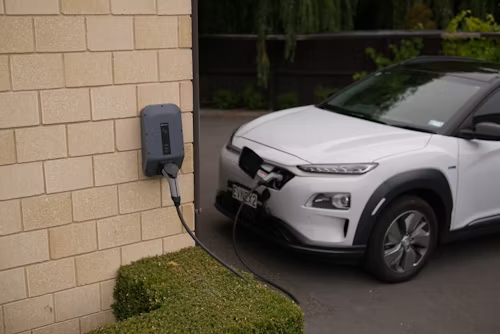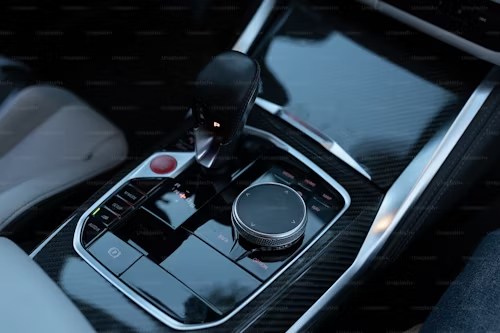The Future of Mobility: Embracing Green Car Technology and Smart Car Modifications

In the rapidly evolving world of automotive technology, the trend towards sustainability and innovation has led to significant advancements in 'green car technology', 'smart car modifications', and 'electric smart cars'. As consumers become more environmentally conscious, the demand for eco-friendly transportation solutions that do not compromise on performance or convenience has skyrocketed. This post delves into how green technologies and smart modifications are shaping the future of driving, offering a comprehensive guide to the latest trends and technologies in the automotive industry.
Understanding Green Car Technology
Green car technology encompasses a variety of innovations designed to reduce the environmental impact of vehicles. The main goal is to decrease emissions and improve the efficiency of cars, thereby contributing to a healthier planet. Here’s a closer look at the core aspects of this technology:
- Electric Vehicles (EVs): EVs are at the forefront of green car technology. Unlike traditional cars that use gasoline or diesel, electric vehicles run on electricity, significantly reducing carbon emissions.
- Hybrid Vehicles: These vehicles combine a conventional internal combustion engine with an electric propulsion system. The hybrid approach allows for better fuel efficiency and reduced emissions.
- Hydrogen Fuel Cell Vehicles: These use hydrogen gas to power an electric motor. While less common than EVs, they produce zero emissions and can be refueled quickly.
- Sustainable Materials: The use of eco-friendly materials in car manufacturing, such as recycled plastics, bio-based fibers, and repurposed materials, is also an integral part of green car technology.
The adoption of these technologies not only helps in reducing environmental pollution but also in minimizing the carbon footprint associated with traditional car manufacturing and usage.
Smart Car Modifications: Enhancing Efficiency and Performance
As the name suggests, smart car modifications involve upgrading various aspects of a vehicle to boost its performance, efficiency, and comfort using the latest technology. These modifications can range from simple software upgrades to installing advanced hardware. Here are some popular smart modifications that are transforming ordinary vehicles into extraordinary machines:
- Engine Control Unit (ECU) Tuning: This involves recalibrating the software that controls the engine's functioning, potentially improving fuel efficiency and power output.
- Advanced Battery Management Systems: Especially crucial for electric and hybrid cars, these systems ensure optimal performance and longevity of the battery.
- Regenerative Braking Systems: Common in electric and hybrid vehicles, this system recovers energy that would otherwise be lost during braking and uses it to recharge the battery.
- Aerodynamic Enhancements: Modifications like rear spoilers, front splitters, and side skirts can reduce air resistance and improve fuel efficiency.
- Smart Connectivity: Integrating IoT devices for enhanced navigation systems, real-time car diagnostics, and automated emergency systems, making the vehicle safer and more user-friendly.
These smart technologies not only enhance the vehicle's performance but also contribute to sustainable mobility by improving fuel efficiency and reducing emissions.
Rise of Electric Smart Cars
Electric smart cars are a revolutionary step in the automotive industry, combining the environmental benefits of electric power with cutting-edge technology for smarter performance and connectivity. These vehicles are designed to be efficient, environmentally friendly, and technologically advanced, embodying the true spirit of innovation. Here's why electric smart cars are gaining popularity:
- Zero Emissions: Electric smart cars run entirely on electricity, drastically reducing greenhouse gas emissions compared to conventional vehicles.
- High Efficiency: They convert over 60% of the electrical energy from the grid to power at the wheels, far exceeding the efficiency of gas-powered vehicles.
- Reduced Operating Costs: Electric smart cars are cheaper to operate as electricity is less expensive than gasoline, and they require less maintenance due to fewer moving parts.
- Advanced Features: These cars often come equipped with autonomous driving features, advanced infotainment systems, and connectivity that integrates seamlessly with your digital lifestyle.
The integration of smart technology in electric vehicles not only enhances their appeal but also adds a layer of convenience and safety that is appealing to the modern consumer.
Challenges and Future Prospects
Despite the promising advancements in green car technology and smart modifications, there are several challenges that need to be addressed to advance further. Infrastructure for charging electric vehicles, the high cost of advanced technologies, and consumer acceptance of new technologies are significant hurdles. However, with continuous improvements and supportive policies, the future of green and smart vehicles looks bright.
The automotive industry is at a pivotal point, with green car technology and smart modifications setting the course for a sustainable and innovative future. As technology progresses, the focus will likely shift even more towards fully integrated smart electric vehicles, eventually leading to a cleaner, more efficient, and more sustainable mode of transportation.
The transition to green cars equipped with smart technology is not just a trend but a necessity in our quest for a sustainable future. By adopting these technologies, consumers play a part in driving innovation and environmental stewardship, paving the way towards a greener planet and a more connected world.
Conclusion
The evolution of green car technology and smart car modifications signifies a transformative era in the automotive industry. These advancements are not only making vehicles safer, more efficient, and more enjoyable to drive but are also crucial in our fight against climate change. As the market for electric smart cars grows, these technologies will become more accessible, driving us towards a sustainable and exciting future of transportation.
Embracing these changes requires both consumer acceptance and proactive government policies. With continued innovation and increased awareness, the dream of a fully sustainable transport system is within reach, promising a better, cleaner earth for future generations.




